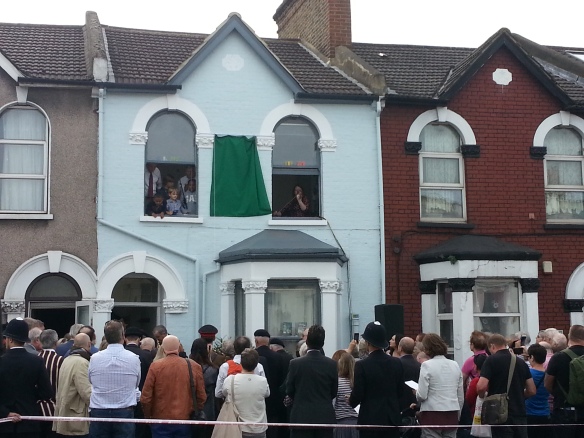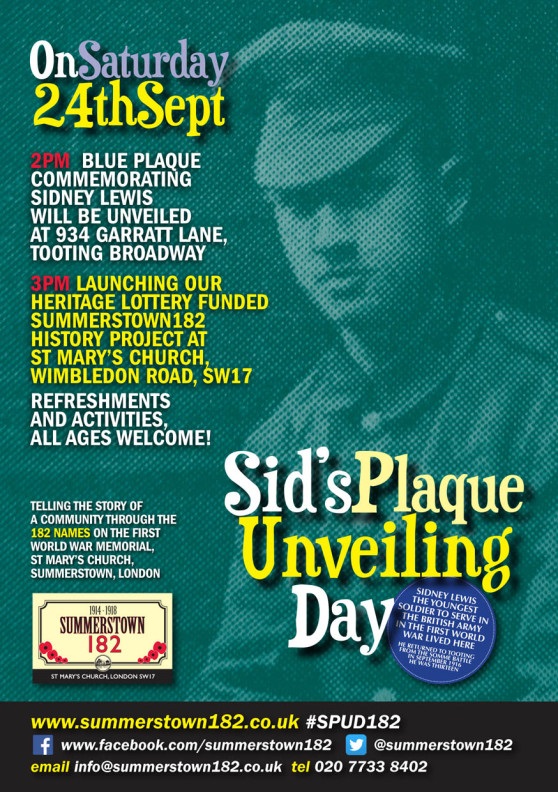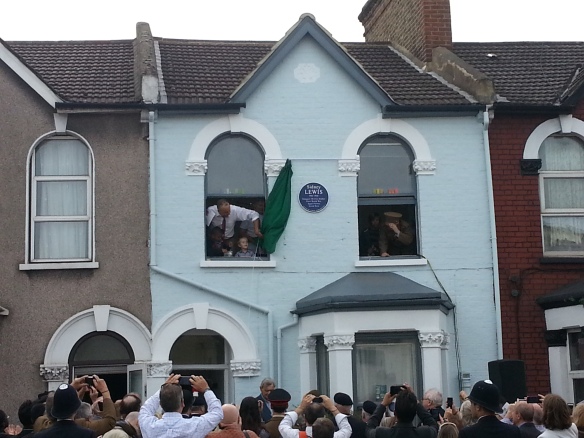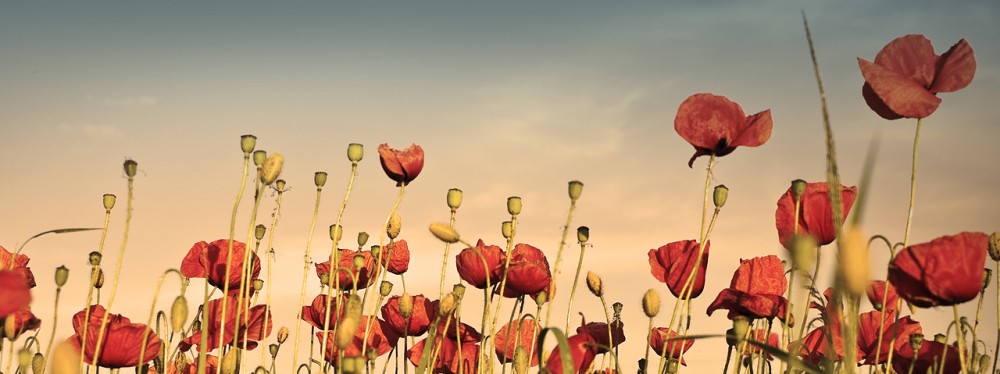Last Saturday afternoon there was quite a crowd gathered around an ordinary looking terraced house on Garratt Lane in Tooting. Passengers on passing buses stared out of the windows to try and work out what all the fuss was about.

The fuss was no greater around this house than it would have been 100 years ago when a 13 year old boy returned there to his family after having fought on the Somme front for six weeks. The boy was Sidney Lewis, tall for his age maybe, but surely not tall enough to pass for the 19 years old he claimed to be upon enrolling with the East Surrey regiment in August 1915. However, he did join up and only much much later did his mother submit his birth certificate to the War Office to prove that he was in fact extremely underage, whereupon he was brought back to England and discharged from service. The Daily Mirror picked up the story and published it along with a photo of the boy soldier in September 1916. 100 years later we all stood outside Sidney’s former house to witness a commemorative plaque being unveiled, funded by public subscription and brought to fruition by the laudable efforts of the Summerstown 182 project.

Sidney’s son Colin unveiled the plaque and his grandson scattered confetti from an upstairs window where a violin played. Colin has said that his father used to talk about having served in World War One but it was thought to be a tall tale as he wouldn’t have been old enough at the time to have served.

A small paragraph in the Wandsworth Borough News on 22nd September 1916 reveals that Sidney’s brother had enlisted in the same regiment at the outbreak of war in 1914, so it is clear that Sidney wanted to follow in his brother’s footsteps. In the latter part of 1915 conscription was yet to be introduced, so the army was desperate for volunteers. Serving on the front line seemingly didn’t deter Sidney from further active service though, as he joined the army again in 1918 and later served in the police force.
Read more of Sidney Lewis’s story here: Surrey in the Great War: A County Remembers
Find out more about the Summerstown 182 project here
Wandsworth Borough News is available on microfilm at Wandsworth Heritage Service






